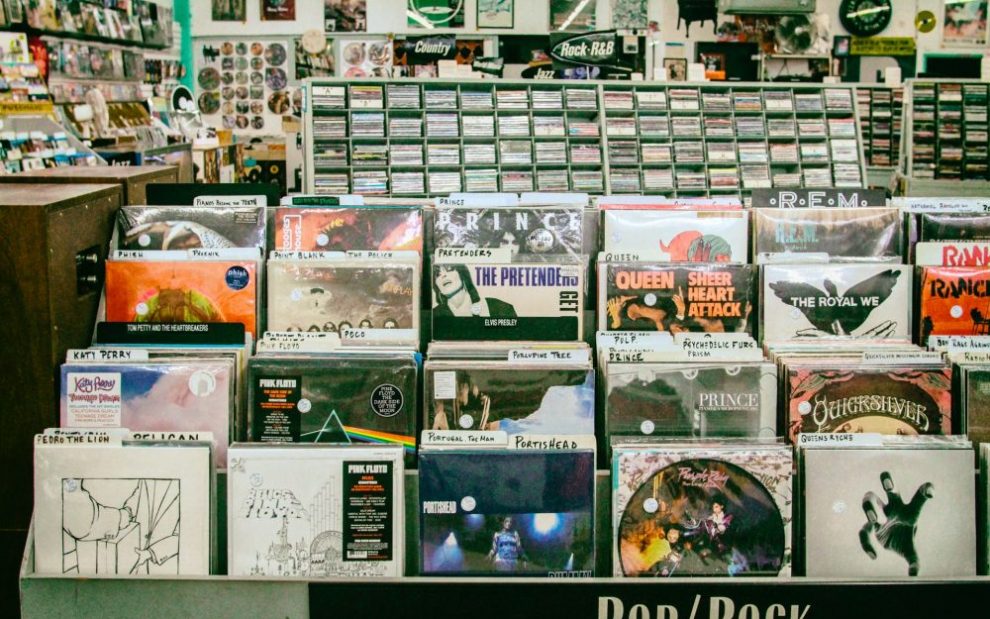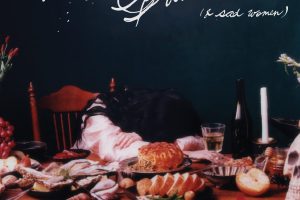I must have looked pretty silly to other drivers.
But there I was. A grown man of 40 years. A father going home to his family. Driving on the freeway in my Kia, blaring the music of a recently deceased, young, emo hip-hop artist, Juice WRLD. I was bobbing my head, bouncing my shoulders, waving my hand, and singing/rapping along:
I can’t breathe, I’m waiting for the exhale
Toss my pain with my wishes in a wishing well
Still no luck, but oh well
I still try even though I know I’m gon’ fail . . .
I realized how silly I must have looked. But I couldn’t help it. And I didn’t care. The music got to me. I was moved in body, mind, and spirit.
Popular music, aka nonreligious music, can be a secular sacrament. It is secular because it comes from the world and is not intended for official worship. It is a sacrament because it conveys God’s presence to us and awakens our natural inclination for encountering the divine in all things. This is how all of creation (and the arts) has the possibility to reflect God’s image to us and channel God’s Spirit to move through us. It rouses us to know ourselves better and pursue the “Something More” of our existence.
This Something More is one that we can’t quite name, can’t quite grasp, but whose presence we intuitively encounter in our uncertainty and vulnerability. At its best, popular music simply tells the deep truths of being human in a way that no other form of language can. It intimates an encounter with this Something More, or, as St. Anselm of Canterbury phrased it, “that than which greater cannot be thought.”
Powerful music grabs us by the soul. It is alive. It doesn’t allow us to remain inert and complacent.
This is also why it’s so difficult to write about music. Unlike the written word and some of the visual arts, music needs to be experienced with your whole being: body, mind, and spirit. Be it hip-hop, jazz, blues, rock, folk, country, or classical, powerful music grabs us by the soul. It is alive. It doesn’t allow us to remain inert and complacent. Music moves us and asks us to let down our guard, to be carried by its rhythm and harmonize with its flow. It channels our emotions, builds resilience in our souls, and cleanses our bodies.
Music speaks intimately to us and fosters intersubjectivity. That is, it reminds the listener that they are part of a larger “we.” Our individuality is connected to community, and the boundaries between “you” and “I” are not as distinct as we sometimes think. Music shows that the boundaries between an individual’s experiences and existence and those of God’s other creatures are malleable and porous. Each of us is connected to others and can be invited into the experience of another person or community. That means musicians and their audiences can share not just an experience but even a consciousness for a moment. In that moment, we know ourselves better and are known truthfully by others in all of our brokenness.
Intersubjectivity, of a kind, arose while I was driving on the freeway. There was no good reason for it other than that the Spirit moves where and how it will. After all, Jarad Anthony Higgins, aka Juice WRLD, and I seemingly don’t have much in common. He was born in December 1998. That’s when I was a freshman in college. He was a Black youth from Chicago and its south suburbs. I am a white man from Northeast Ohio’s Rust Belt where factories meet farm country. He was single and died in 2019 from seizures and drug addiction right after his 21st birthday. I am married, have two sons, and turned 41 in February 2021.
We represent very different generations, upbringings, hometowns, and racial and cultural backgrounds. Moreover, the United States is structured so as to ensure that those racialized as Black and those racialized as white—especially from different generations—have few opportunities to encounter their shared humanity as cobearers of God’s image.
But the musical work of Juice WRLD spoke to me that day. I can’t explain it. His music just connected with some of my deepest memories and emotions. I was listening to his song “Wishing Well,” and we connected with each other in the presence of the Something More:
Ring-ring, phone call from depression
You used my past and my memories as a weapon…
This can’t be real, is it fiction?
Somethin’ feels broke, need to fix it
I cry out for help, do they listen?
I’ma be alone until it’s finished…
This is the part where I tell you I’m fine, but I’m lying
I just don’t want you to worry.
This is the part where I take all my feelings and hide ’em
’Cause I don’t want nobody to hurt me.
In that moment Higgins’ struggles with his inner demons mirrored part of my own struggles. His music articulated experiences from my younger days about which I was bereft of words. My inner world recognized part of his, and his articulated part of mine. His words were carried by a rhythm and soundscape that communicated resigned acceptance to the power of one’s demons; a powerful spark of resilience to confront them; and a final, honest desire to be free from it all and rest. It sounds very similar to the brutally honest examination of self that often precedes a call for help, healing, and forgiveness from family, friends, a recovery group, or a religious community.
I was not expecting this, but perhaps I should have seen it coming. Despite our differences, Higgins and I have both known post-traumatic stress disorder and mental illness, lived with seizures, had youthful struggles with addictive behavior, and recognized a primal feeling of being broken while in need of a fix that transcended our own power to provide. When you have suffered trauma, survived, and remained resilient on the other side, you’re able to sense its presence in others. This is especially true with music.
When you have suffered trauma, survived, and remained resilient on the other side, you’re able to sense its presence in others.
Advertisement
Music can foster this intersubjectivity. It is akin to the literal meaning of communion—“shared participation in” or “to become united with”—that is, an analogy to the promise of the paschal mystery. We become one with God, one another, and all of creation. This is how music is a secular sacrament. We truly experience God’s presence of goodness, truth, and beauty for a passing moment. We intuitively recognize such beauty, especially the fractured beauty mediated by the scars of surviving trauma, and that beauty can bind us together.
Dorothy Day loved to quote Fyodor Dostoevsky: “I believe, in the end, the world will be saved by beauty.” Isn’t that the truth, especially with music. Even when such beauty makes us look silly on the freeway.
This article also appears in the April 2021 issue of U.S. Catholic (Vol. 86, No. 4, pages 27-28). Click here to subscribe to the magazine.
Image: Unsplash/Mick Haupt














Add comment